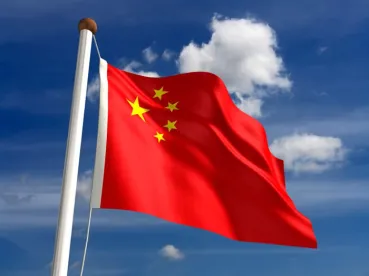On July 25, 2014, the U.S. Department of Commerce (Commerce) announced its antidumping duty preliminary determinations involving Certain Crystalline Silicon Photovoltaic Products from Taiwan and the People’s Republic of China. These determinations come on the heels of a preliminary determination in the companion countervailing duty investigation on the same products from the People’s Republic of China in early June. In addition to dumping margins ranging from 27.59 to 44.18 percent for Taiwan, and from 26.33 to 165.04 percent for China that must now be paid on entries of subject goods, Commerce is also instituting significant certification requirements that impose significant burdens on both U.S. importers and foreign exporters of subject merchandise.
New Certification Requirements Relating to Origin of Merchandise
There are essentially three elements related to the origin of solar cell products that will now be required of importing and exporting parties on imports of subject goods (which generally include crystalline silicon photovoltaic cells and modules, laminates and/or panels consisting of crystalline silicon photovoltaic cells, whether or not partially or fully assembled into other products, including building integrated materials). Failure to provide such certifications will result in the application of special duties to merchandise that may not in fact constitute subject goods (either in whole or in part).
-
First, if an importer imports solar panels/modules that were assembled in the PRC (or Taiwan) and it claims the panels/modules do not contain solar cells manufactured in third countries using ingots, wafers or partially produced solar cells manufactured in the PRC (or Taiwan), the importer will be required to maintain an importer certification to this effect. In this case, a valid certification to this effect exempts the product from the application of AD/CVD duties.
-
Second, the importer and exporter are also required to maintain an exporter certification if the exporter of the panels/modules for which the importer is making the claim is located in the PRC (or Taiwan). The importer and PRC- (or Taiwan-) exporter are also required to maintain sufficient documentation supporting their certifications. If the certification or documentation requirements noted in the certification have not been met, the U.S. Customs and Border Protection Service (CBP) will require the posting of an antidumping duty cash deposit on those entries equal to the PRC-wide rate for China in effect at the time of the entry, and at the exporter-specific rate in effect at the time of entry for Taiwan.
-
Third, if a solar panel/module assembled in the PRC (or Taiwan) contains some solar cells manufactured in third countries using ingots, wafers, or partially produced solar cells manufactured in the PRC (or Taiwan), but the importer is unable to identify the total value of the panel/module subject to provisional measures, CBP will require the posting of an antidumping duty cash deposit on the total entered value of the panel/module equal to the PRC-wide rate in effect at the time of the entry for China, and the appropriate exporter-specific rate in effect at the time of entry for Taiwan.
Note that the above certifications and documentation will not have to be provided to CBP as part of the entry documents, unless the certification or documentation is specifically requested by CBP. While the specific certification language has not yet been released by Commerce, it will be announced in the next few days.
The imposition of the above-noted certification requirements may cause significant disruption to the solar cell industry, which is highly globalized and often includes multinational sourcing, production, and assembly arrangements. The U.S. importing community will need to ensure that its Taiwanese and/or Chinese suppliers will be able to meet the requirements imposed by the new certifications, as the risk of non-compliance will be the imposition of potentially prohibitive antidumping and countervailing duties against the full value of merchandise that may otherwise qualify for exemption from any future Orders on Certain Crystalline Silicon Photovoltaic Products from Taiwan and the People’s Republic of China.
Next Steps
We note that the U.S. government will not ultimately decide the fate of these antidumping investigations until early 2015. However, if Commerce concludes that imports have been dumped, and the U.S. International Trade Commission concludes that the U.S. industry has been injured by those dumped imports, then Antidumping Orders against both countries will be instituted and are likely to apply to all subject entries beginning with the date publication in the Federal Register of these preliminary determinations. Therefore, U.S. importers of subject goods must take steps now to ensure compliance with these new certification requirements, or else they will face the imposition of potentially prohibitive duties on their imports of solar cell products, including those that are rightfully exempted from the duties based on the structure of foreign manufacture of those products.




 />i
/>i

